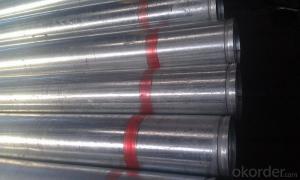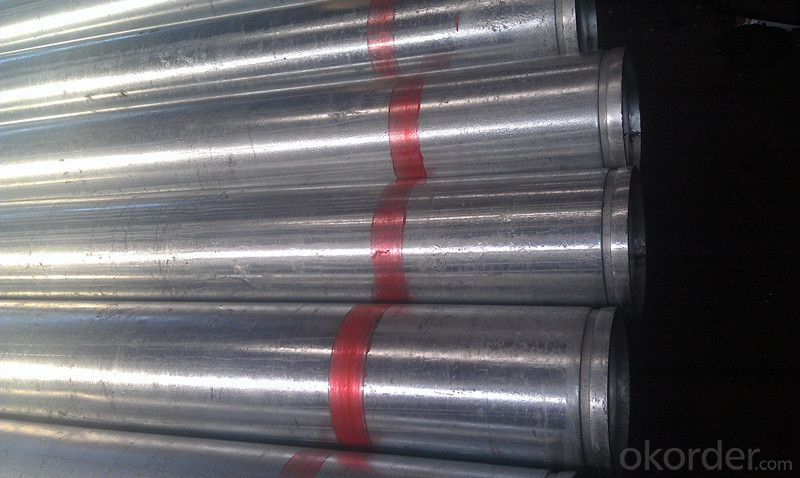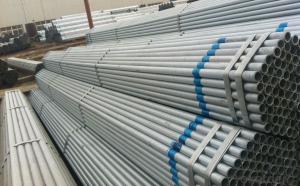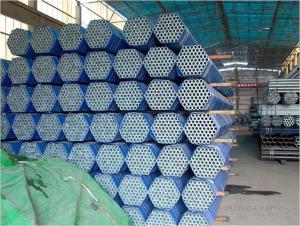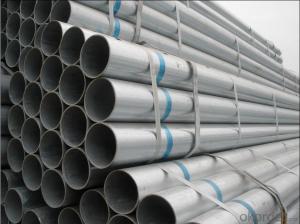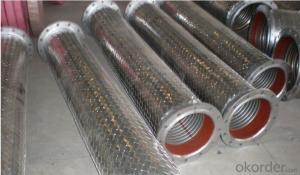BS 1387 hot galvanized grooved pipes for fire fighting
OKorder Service Pledge
Quality Product, Order Online Tracking, Timely Delivery
OKorder Financial Service
Credit Rating, Credit Services, Credit Purchasing
You Might Also Like
Hot dipped galvanized steel pipe
Both End Double Groove
Standard:BS1387-1985
Size availalbe: 1/2"-16"
Products name: Hot dipped galvanized steel pipes
Stand:BS1387-1985,EN10025
Technical: Both End Dould Groove.
OD Available: 1/2"-16"
Thickness Availalbe: 2.0mm-10.0mm
Lenth:6m or according to customer requirement.
- Q: What is the standard length of a steel pipe?
- The standard length of a steel pipe can vary depending on the application and industry, but commonly it ranges from 18 to 24 feet.
- Q: What is the difference between steel pipes and PVC-U pipes?
- Steel pipes and PVC-U pipes differ in their composition, durability, and application. Steel pipes are made from iron and carbon, providing them with high strength and resistance to extreme conditions. They are commonly used for transporting water, gas, and oil in industrial settings due to their durability and ability to withstand high pressure and temperature. PVC-U pipes, on the other hand, are made from a synthetic plastic called polyvinyl chloride. They are lightweight, corrosion-resistant, and easy to install, making them ideal for residential plumbing, irrigation systems, and drainage. While steel pipes are more robust and suitable for heavy-duty applications, PVC-U pipes are cost-effective, versatile, and suitable for lighter applications.
- Q: What is the difference between steel pipe and fiberglass pipe?
- Steel pipe and fiberglass pipe differ in terms of their material composition, flexibility, resistance to corrosion, and cost. Steel pipe is made of an alloy of iron and carbon, known for its strength and durability, making it a popular choice for plumbing, construction, and industrial projects. In contrast, fiberglass pipe is composed of glass fibers embedded in a resin matrix, resulting in a lightweight and corrosion-resistant material suitable for applications requiring chemical resistance. Another contrasting factor between steel pipe and fiberglass pipe is their level of flexibility. Steel pipe is rigid and stiff, while fiberglass pipe offers greater flexibility, allowing it to bend and conform to different shapes and contours. This flexibility makes fiberglass pipe easier to install in tight spaces or areas with complex geometries. Corrosion resistance is another significant difference between the two materials. Steel pipe is susceptible to corrosion, particularly in environments with high moisture or chemical exposure. To counteract this, steel pipes are often coated or lined with corrosion-resistant materials. In contrast, fiberglass pipe is inherently resistant to corrosion due to its construction, making it a preferred choice for applications in saltwater environments or chemical processing plants. Cost is yet another factor that sets steel pipe and fiberglass pipe apart. Generally, steel pipe is more affordable than fiberglass pipe, especially for smaller diameter pipes. However, as the diameter and pressure rating increase, the cost of steel pipe can exceed that of fiberglass pipe. Additionally, fiberglass pipe requires less maintenance and has a longer lifespan, which can offset the initial cost difference over time. In conclusion, the differences between steel pipe and fiberglass pipe can be summarized in terms of their material composition, flexibility, corrosion resistance, and cost. The choice between these two types of pipes depends on various project requirements, including the application, environment, budget, and expected lifespan.
- Q: Are steel pipes suitable for underground compressed air systems?
- Yes, steel pipes are suitable for underground compressed air systems. Steel pipes are known for their strength and durability, making them capable of withstanding the high pressure and potential corrosion that may occur in underground environments. Additionally, steel pipes are resistant to heat and can efficiently conduct compressed air, making them a reliable choice for such systems.
- Q: What are the different sizes of threads available for steel pipes?
- The different sizes of threads available for steel pipes include standard pipe threads such as NPT (National Pipe Taper) and NPS (National Pipe Straight), as well as metric pipe threads like MPT (Metric Pipe Taper) and MPS (Metric Pipe Straight). These sizes can vary from 1/8 inch all the way up to several inches in diameter, depending on the specific application and industry requirements.
- Q: What are the different methods of protecting steel pipes from external damage?
- There are several methods of protecting steel pipes from external damage, including coating the pipes with a corrosion-resistant material such as epoxy or polyethylene, applying a layer of protective tape, installing a cathodic protection system, using concrete or rock shielding, and implementing measures to prevent soil movement or impact damage.
- Q: What are the quality control measures for steel pipe manufacturing?
- The quality control measures for steel pipe manufacturing typically include various stages of inspection and testing, starting from raw material evaluation to the final product. These measures may include checking the chemical composition and mechanical properties of the steel, conducting non-destructive testing such as ultrasonic or magnetic particle inspection, monitoring the dimensions and surface finish of the pipes, and ensuring compliance with relevant industry standards and specifications. Additionally, quality control measures may involve regular maintenance and calibration of equipment, rigorous documentation and traceability of processes, and continuous monitoring and improvement of manufacturing techniques to meet the desired quality standards.
- Q: Can steel pipes be used for gas transportation?
- Yes, steel pipes can be used for gas transportation. Steel is a commonly used material for gas pipelines due to its strength, durability, and resistance to corrosion. Steel pipes are able to withstand high pressures and are suitable for transporting both natural gas and propane. They are also capable of withstanding extreme temperatures, making them ideal for gas transportation in various environments. Additionally, steel pipes can be welded together, allowing for a seamless and continuous pipeline system. However, it is important to ensure that the steel pipes used for gas transportation are properly coated and protected against corrosion to prevent any leaks or damage to the pipeline.
- Q: How are steel pipes used in the marine industry?
- Steel pipes are commonly used in the marine industry for various applications such as shipbuilding, offshore oil and gas exploration, and marine infrastructure. They are utilized for constructing hulls, pipelines, and support structures due to their high strength, durability, and resistance to corrosion from seawater. Steel pipes also provide a reliable and efficient means of transporting fluids, gases, and other materials within marine vessels and structures.
- Q: Can steel pipes be used for paper mills?
- Yes, steel pipes can be used for paper mills. Steel pipes are often used in paper mills for various applications such as transporting water, steam, chemicals, and pulp. They are preferred for their durability, resistance to corrosion, and ability to handle high pressure and temperature conditions commonly found in paper mill operations.
Send your message to us
BS 1387 hot galvanized grooved pipes for fire fighting
OKorder Service Pledge
Quality Product, Order Online Tracking, Timely Delivery
OKorder Financial Service
Credit Rating, Credit Services, Credit Purchasing
Similar products
Hot products
Hot Searches
Related keywords
